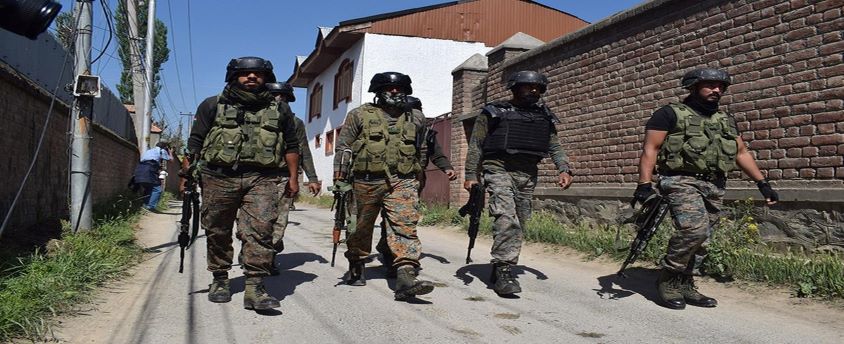AFSPA extended in parts of Arunachal Pradesh, Nagaland
25, Mar 2023

Prelims level : Policies
Mains level : GS-III Challenges to internal security through communication networks, role of media and social networking sites in internal security challenges, basics of cyber security; money-laundering and its prevention.
Why in News?
- The Union Home Ministry has extended for six months the “disturbed area” status in parts of Arunachal Pradesh and Nagaland under the Armed Forces (Special Powers) Act, 1958.
About the News:
- According to two separate notifications, the decisions have been taken after a review of the law-and-order situation in both States.
- The Home Ministry said the Central Government in exercise of the powers conferred by Section 3 of the AFSPA 1958 (28 of 1958) had declared the Tirap, Changlang and Longding districts in Arunachal Pradesh and the areas falling within the jurisdiction of Namsai and Mahadevpur police stations in Namsai district of Arunachal Pradesh, bordering the state of Assam as ‘disturbed area’ on September 30, 2022.
- One more police station area has been brought under the ambit of the AFSPA through the fresh notification.
What does the AFSPA mean?
- In simple terms, AFSPA gives armed forces the power to maintain public order in “disturbed areas”.
Powers given to armed forces:
- They have the authority to prohibit a gathering of five or more persons in an area, can use force or even open fire after giving due warning if they feel a person is in contravention of the law.
- If reasonable suspicion exists, the army can also arrest a person without a warrant; enter or search premises without a warrant; and ban the possession of firearms.
- Any person arrested or taken into custody may be handed over to the officer in charge of the nearest police station along with a report detailing the circumstances that led to the arrest.
What is a “disturbed area” and who has the power to declare it?
- A disturbed area is one which is declared by notification under Section 3 of the AFSPA. An area can be disturbed due to differences or disputes between members of different religious, racial, language or regional groups or castes or communities.
- The Central Government or the Governor of the State or administrator of the Union Territory can declare the whole or part of the State or Union Territory as a disturbed area.
Has there been any review of the Act?
- On November 19, 2004, the Central government appointed a five-member committee headed by Justice B P Jeevan Reddy to review the provisions of the act in the north eastern states.
- The committee submitted its report in 2005, which included the following recommendations: (a) AFSPA should be repealed and appropriate provisions should be inserted in the Unlawful Activities (Prevention) Act, 1967; (b) The Unlawful Activities Act should be modified to clearly specify the powers of the armed forces and paramilitary forces and (c) grievance cells should be set up in each district where the armed forces are deployed.
- The 5th report of the Second Administrative Reforms Commission on public order has also recommended the repeal of the AFSPA.






